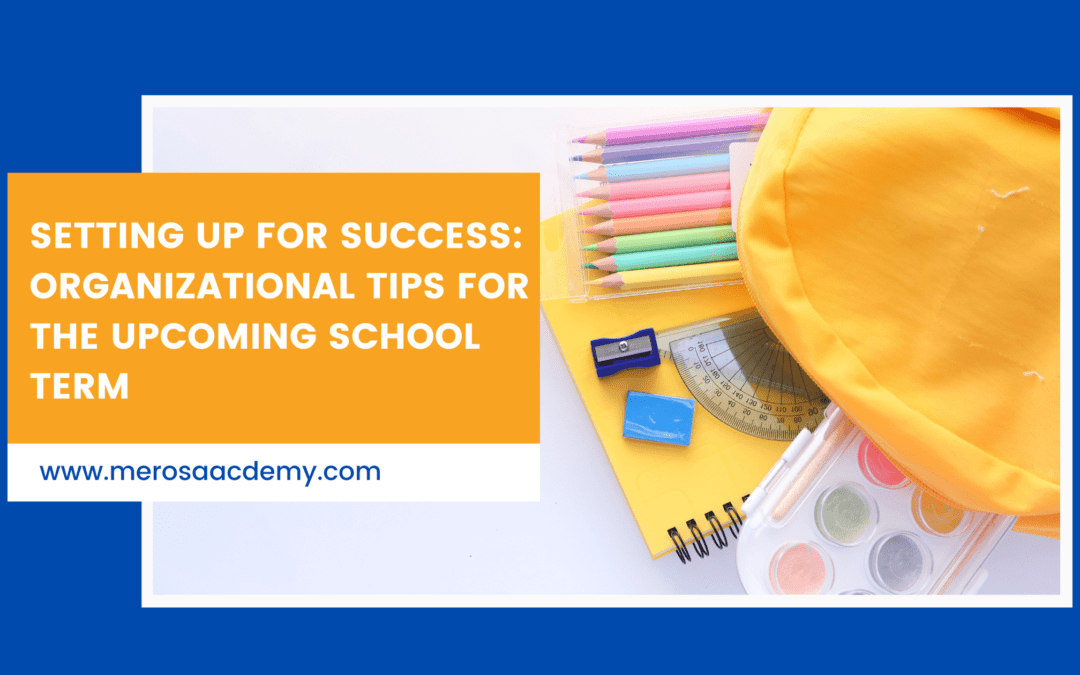
Setting Up for Success: Organizational Tips for the Upcoming School Term
The smell of sharpened pencils and the promise of new beginnings are in the air – a new school term is just around the corner! As we bid farewell to carefree summer days, it’s time to don our organizational hats and set the stage for a successful academic journey.
Whether you’re a parent guiding your little scholar or a student preparing to conquer new horizons, this guide is here to equip you with essential organizational tips. From creating an inspiring study space to mastering time management, let’s dive into the art of setting up for success.
1. Craft Your Sanctuary: The Ultimate Study Space:
Step into the world of magical productivity by curating a study space that sparks creativity and focus. Whether it’s a cozy corner or a dedicated desk, make it a haven that invites learning. Arrange supplies neatly, infuse them with natural light, and personalize them with motivational quotes or artwork. Remember, a clutter-free space equals a clutter-free mind!
2. Gather Your Arsenal: The Hunt for Supplies:
The hunt for school supplies – a rite of passage that ignites anticipation. Collaborate with your child in selecting the essentials: notebooks that hold dreams, pens that script ideas, and folders that promise organization. Create a checklist to ensure no item is left behind, and consider recycling and reusing where possible – it’s a lesson in sustainability too.
3. Goal Setting:
Empower your young learner to navigate the school term with purpose by setting clear goals. Sit down together and outline what they want to achieve academically and personally. Break these goals into manageable milestones, ensuring they are specific, measurable, achievable, relevant, and time-bound (SMART). Regularly revisit these goals to track progress and celebrate victories.
4. The Art of Time Management:
Time – a resource both precious and finite. Teach your child the art of time management early on. Introduce them to planners, digital calendars, or even old-fashioned to-do lists. Encourage them to allocate time for study, recreation, and rest. Remind them that time management isn’t about squeezing more in but about living intentionally and balancing commitments.
5. Unlocking Study Superpowers: Effective Study Habits:
Equip your child with study superpowers by instilling effective study habits. Teach them the Pomodoro Technique – 25 minutes of focused study followed by a 5-minute break. Encourage active learning through summarizing, teaching concepts to others, and practicing past materials. And let’s not forget the power of a growth mindset – mistakes are stepping stones to mastery.
As the school term unfolds, remember that organizational success is a journey, not a destination. By crafting an inspiring study space, gathering the tools of the trade, setting goals, mastering time management, and nurturing effective study habits, you’re providing yourself or your child with a powerful toolkit.
This toolkit doesn’t just navigate academic challenges; it shapes life skills that extend far beyond the classroom walls.
So, here’s to a new school term brimming with potential, growth, and the satisfaction of a well-organized path to success. Let’s make this term the best one yet!










